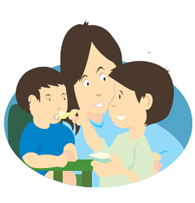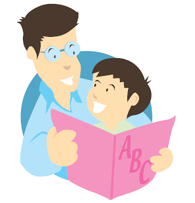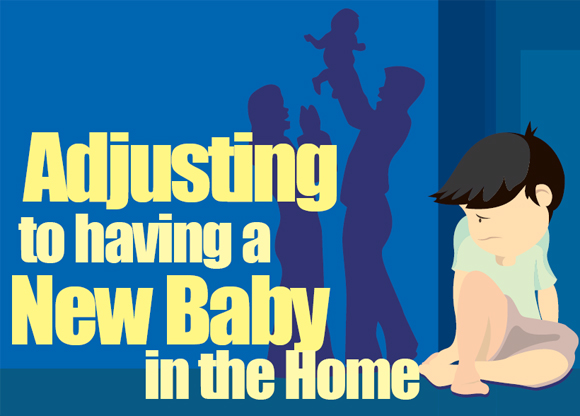The arrival of a new baby in the family should be greeted with much joy and happiness. However, the reality is that it sometimes brings about behavioral and emotional problems among the siblings.
Here are some cases that might remind you of a situation you’re currently facing at home.
Temper tantrums
When baby first arrived, Xiao Mei aged 4 years old appeared to be quite hesitant. It was as if she was not sure of who the new baby was, and what to do with him. Within a matter of weeks, Xiao Mei became cranky and threw a temper tantrum every time baby came near her. Xiao Mei even started to shout, yell and cry every time her parents attended to her baby brother.
Depression
Ganesh’s parents could not understand what happened to the 5 year old boy when his new baby sister arrived. He did not eat as usual, looked sad and moody, and appeared to be not interested in the baby at all. At kindergarten, his academic performance dropped. Ganesh’s parents took him to various doctors for assistance, but nothing seemed to be able to help him.
Accusing parents of not loving
When Siti’s new brother arrived, Siti who is 3 year old, behaved as if baby was an object and not a person. She would grab things from him and, at any opportunity, scream at him.
She would also be quite noncompliant to requests of her parents and would say “You don’t love me any more; you give baby everything but I get nothing”. Siti screamed when she was denied her way.

Bullying the new sibling
Rupert was the meanest and naughtiest boy his parents had encountered. When his baby sister was sleeping, he would sneak up to her cot and poke and pinch her. Naturally, this resulted in a lot of screaming and crying. When reprimanded, Rupert shrugged his shoulders and reluctantly said “Sorry”. After giving numerous scoldings and lectures, Rupert’s parents were at a loss as to what else to do.
The problems described above can be quite disturbing for parents who not only have a baby to look after, but also a child with behavioural and emotional problems to manage. When investigated in detail, researchers observe that there are common causes for these problems. Some children feel that, with the birth of a new sibling, their parents do not love them anymore. They view the increasing amount of time that parents spend with the new sibling as evidence that parents have lost interest in them. They report that parents no longer play with them or say nice things about them, but spend a lot of time scolding and ignoring them, instead. Thus, it appears that children feel parents are not spending enough time with them, and feel distressed.
In addition to this, many children feel suspicious about the new baby. They do not know what the baby is there for, and many feel that the baby is there to take all the attention away from them. As the children feel alienated and unwanted in the family, they subsequently do not know how to react to the new baby. As a result, they keep away from, and react in a nasty way towards, the baby.
Having understood the problems and the causes of sibling distress when a new baby arrives, let us examine what can be done to rectify the situation.
Find a role for siblings
It helps to understand that children who are allowed to play a role in caring for the needs of the baby develop more empathy towards the new sibling. The baby is seen as a human being.

Common things that can be done to assist include keeping baby entertained, playing with baby and carrying baby’s clothes or helping to feed baby under your supervision.
Spend time with siblings
Nothing proves to children more that their parents love them than their parents spending time with them.
Thus, even though there is a new baby who demands a lot of attention, parents must take an effort to spend personal time with each child in the family. This includes playing, praising and encouraging good behaviour.

Learn to take a break
Often, children get cranky and behave badly because they are imitating their parents’ behaviours. Parents are more likely to behave in an erratic manner if they are all stressed out. Thus, it helps if parents are able to take short breaks away from caring for the children. This may mean taking turns to have an hour or two away from the children to take short naps, recharge the emotional batteries, or even go out shopping or fishing with friends.
Clear and consistent discipline with children
Consistent discipline in all family circumstances is important for regulating children’s mental health. This involves developing structured routines for the children, noticing and praising appropriate behaviours, enforcing rules, and having realistic expectations of their academic performance.
Talk to the children about the new baby
Perhaps the most important point in dealing with siblings is to make sure that they have been introduced to the new baby, have a chance to ask questions, and find out how they can live with the new baby. It is at this point that parents also need to make sure that they emphasise to their children that they still love them, and that they will continue to spend time with them.
All siblings will undergo some initial emotional difficulties when welcoming a new member into their families. With adequate preparation, these problems can be prepared for, and minimised.






Comments